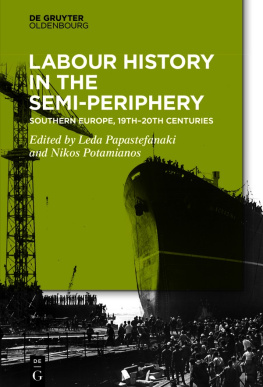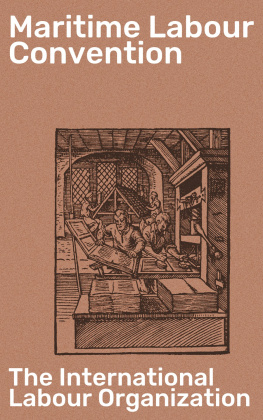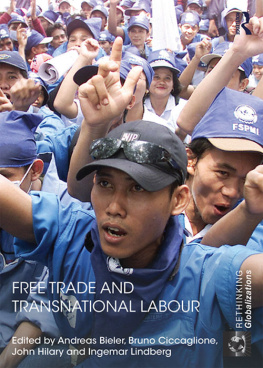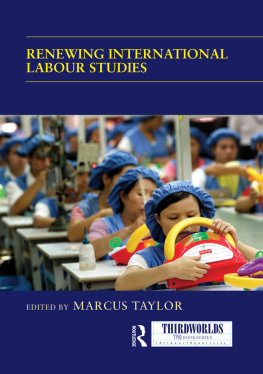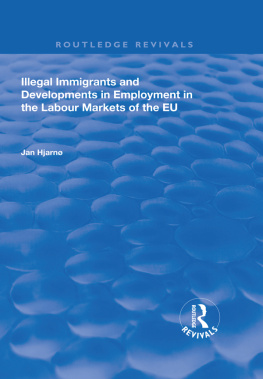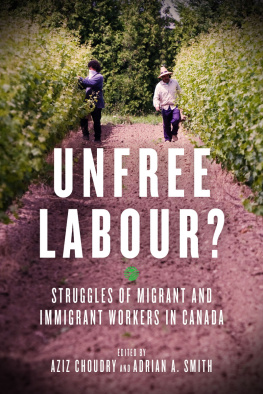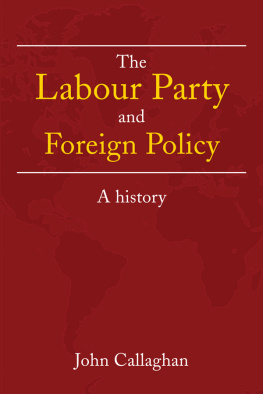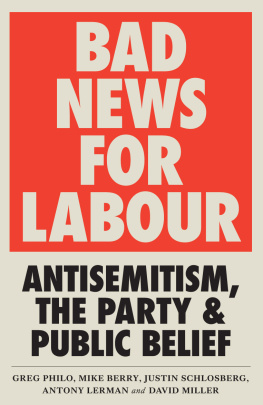Prison Labour: Salvation or Slavery?
Oati International Series
in Law and Society
GENERAL EDITORS
William L.F. Felstiner
Eve Darian-Smith
BOARD OF GENERAL EDITORS
Johannes Feest
Peter Fitzpatrick
Hazel Genn
Eliane Junqueira
Hubert Rottleuthner
Ronen Shamir
TITLES
Totalitarian and Post-Totalitarian Law
Edited by Adam Podgorecki and Vittorio Olgiati
Foreign Courts: Civil Litigation in Foreign Legal Cultures
Edited by Volkmar Gessner
Family Law and Family Policy in the New Europe
Edited by Jacek Kurczewski and Mavis Maclean
Procedural Justice
Edited by Klaus F. Rhl and Stefan Machura
Emerging Legal Certainty: Empirical Studies on the Globalization of Law
Edited by Volkmar Gessner and Ali Cem Budak
First published 1999 by Dartmouth and Ashgate Publishing
Reissued 2018 by Routledge
2 Park Square, Milton Park, Abingdon, Oxon, OX14 4RN
52 Vanderbilt Avenue, New York, NY 10017
Routledge is an imprint of the Taylor & Francis Group, an informa business
Copyright Oati I.I.S.L. 1999
All rights reserved. No part of this book may be reprinted or reproduced or utilised in any form or by any electronic, mechanical, or other means, now known or hereafter invented, including photocopying and recording, or in any information storage or retrieval system, without permission in writing from the publishers.
Notice:
Product or corporate names may be trademarks or registered trademarks, and are used only for identification and explanation without intent to infringe.
Publishers Note
The publisher has gone to great lengths to ensure the quality of this reprint but points out that some imperfections in the original copies may be apparent.
Disclaimer
The publisher has made every effort to trace copyright holders and welcomes correspondence from those they have been unable to contact.
A Library of Congress record exists under LC control number: 99011976
Typeset by Manton Typesetters, Louth, Lincolnshire, UK.
ISBN 13: 978-1-138-38628-0 (hbk)
ISBN 13: 978-0-429-42687-2 (ebk)
Contents
ARNO PILGRAM
KWAME FRIMPONG
JON VAGG AND URSULA SMARTT
FRIEDER DNKEL
FERENC NAGY
LESLIE SEBBA
YUICHI KAIDO AND KATSUSHIKO IGUCHI
GAIL SUPER
CONSTANTIJN KELK
MIRANDA BOONE
ZBIGNIEW HOLDA
DIRK VAN ZYL SMIT
ESTHER GIMNEZ-SALINAS
ANDREA BAECHTOLD
JAMES B. JACOBS
MARK S. FLEISHER AND RICHARD H. RISON
HELENA HENRIKSSON AND RALPH KRECH
GERARD DE JONGE
DIRK VAN ZYL SMIT AND FRIEDER DNKEL
Guide
Prison labour is a controversial issue. It is not difficult to understand why. Over the years penal activists of all kinds have made large and sometimes diametrically opposed claims about penal labour. Some have asserted in the religious language of redemption and salvation that an appropriate system of prison labour can reform prisoners and ensure that they do not reoffend. More have declared that prison labour, properly managed, will be profitable: so profitable that the prison system may cease being a drain on the fiscus. Indeed, bright-eyed prophets have proclaimed that the two goals can be met simultaneously.
For other equally passionate reformers prison labour has epitomized the exploitation of prisoners. The image not only of forced labour but also of prison labour as slavery has been prominent. Critics have pointed to the exploitative nature of such labour and hinted that large profits may be squeezed from those who are unable to resist the might of the state that backs the prison authorities.
Nor have social theorists been shy in attaching significance to changes in approaches to penal labour. The long historical view has been prominent. The study by Rusche and Kirchheimer (1939) that found a direct link between changing modes of production and the evolution of penal practices has continued to inspire inquiries into the direct connection between prison labour and economic developments. Also enormously influential has been the work of Foucault (1977) and of Melossi and Pavarini (1981) who, in very different ways, focused not so much on the direct economic significance of prison labour but on the way in which prison labour was used and continues to be used to shape and discipline not only prisoners but workers in general for the evolving world of work.
Without eschewing either the humanist ideals of the reformers or the theoretical endeavours of the social theorists, the aim of this volume is somewhat different. It is in the first instance a stock-taking exercise designed to elicit basic information as a foundation for reconsidering fixed assumptions about prison labour. In planning this exercise we started from the assumption that prison labour is embedded in national prison law and national practices. These laws and practices need to be researched closely. They cannot simply be deduced from major economic changes or shifts in attitudes to work. From this basis fresh analyses can be attempted.
At one level, prison labour presents a classic field of study for the sociology of law. This is the challenge of understanding what is happening in an area in which the aspirations of law, in general, to uphold human dignity seem to be compromised not only by specific legal enactments (allowing prison labour of various kinds) but also by institutionally embedded practices that undermine both the higher law and, on occasion, the specific legal safeguards (designed in theory to prevent the exploitation of prison labour).
The Oati International Institute for the Sociology of Law provided the ideal setting for a meeting to consider law and practice of prison labour in a comparative and international context. It enabled us to bring together a group of scholars who could describe developments in their own countries and at an international level in a way that would remain sensitive to the large questions raised by reformers and social theorists, but at the same time could provide the detailed information that would allow a better informed reevaluation of these questions.
In drawing up guidelines for participants at the seminar we, as the organizers, were conscious of the need to have sufficient information on law and practice in different countries in order to have a basis for a discussion about trends and developments. On the other hand, our intention was to explore the significance of prison labour in the late twentieth century and not merely to collect material for an encyclopaedia. For this reason, participants who were invited to submit papers on specific countries were given suggestions they could follow, but were not to be bound by them. In each instance they were invited to begin with a brief overview of the history of prison labour. They were then asked to deal with the current position and to indicate in quantitative terms, if possible, how important prison labour was in the context of the respective national prison systems. They were also asked for a short exposition on the official justification for prison labour.
In the invitation to participate, specific questions were posed for participants to consider as a basis for the discussion. These questions referred to six different areas within the wider field of prison studies.


